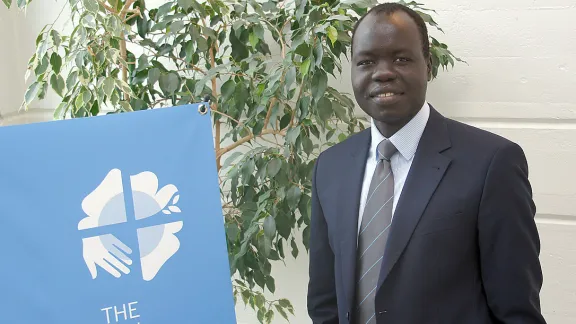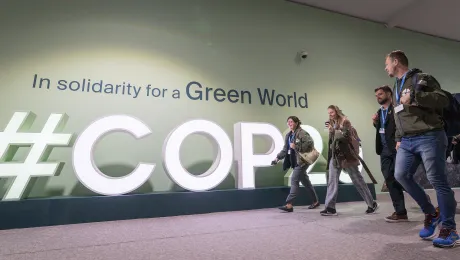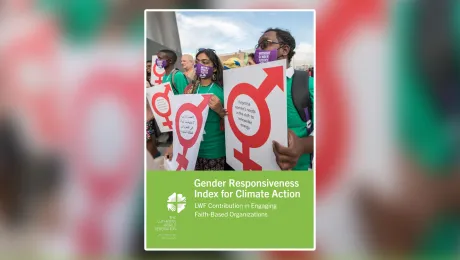
LWF advocacy officer Dr Ojot M. Ojulu. Photo: LWF/P. Mumia
Joint Oral Statements at Human Rights Council
(LWI) – Not enough attention is paid to the impact climate change has on human rights, The Lutheran World Federation (LWF) and ACT Alliance told the 28th Session of the United Nations Human Rights Council (UNHRC) in Geneva today.
Presenting a joint oral statement by both organizations, LWF advocacy officer Dr Ojot M. Ojulu told the council that previous resolutions on human rights and climate change have not adequately influenced the work of the UN Framework Convention on Climate Change (UNFCCC).
“Climate change continues to threaten lives and livelihoods of poor and vulnerable communities around the world,” said Ojulu. “The communities we work with, especially in Africa and the Pacific, are already facing irreversible impacts of climate change,” he emphasized.
“Increased drought and extreme weather events affect rights to health and education, and disproportionately affect already vulnerable populations, and the sinking of small islands states causes disruptions of livelihoods and loss of cultures and traditions,” Ojulu added.
LWF and ACT Alliance urged the UNHRC to monitor the implementation of resolutions the UN passes on climate change; address the rights of communities forced to relocate because of climate change; and ensure the climate change agreement to be adopted by the UNFCCC in December protects human rights.
In the 9 March discussion on the right to food, the LWF and ACT in a joint statement reiterated the Council’s resolution 25/14, saying it was intolerable that 1 billion people today suffer from malnutrition yet the planet produces enough food for everyone. “Hunger is not a question of scarcity but a matter of injustice,” Ojulu emphasized.
LWF and ACT said that at the core of food insecurity in many places was lack of access to land and insecurity of tenure. They noted that 80 percent of the world’s hungry live in rural areas where the right to land was not recognized or respected. They also urged the Council to continue paying “special attention to the unique situation of marginalized groups such as women, minorities and indigenous communities.”
This story was updated on 10 March.


